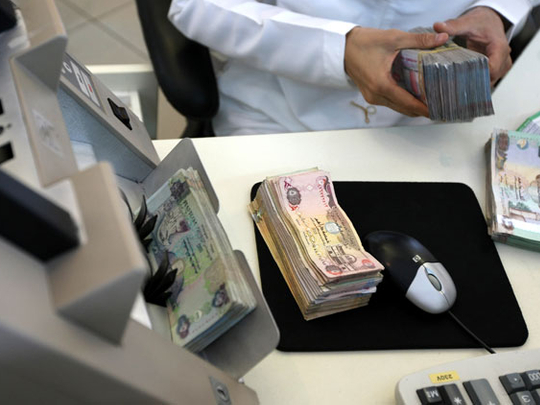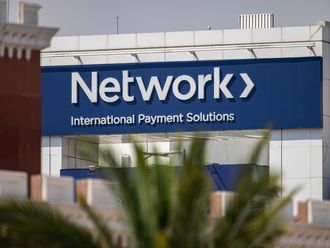
Dubai: The UAE's banking sector is well capitalised to withstand the significant deterioration of asset quality it faces, however, the lending is expected to remain weak and some banks will require capital injections, according to a stress test conducted by Shuaa Capital, a regional investment bank.
Shuaa conducted the stress test on a sample of eight UAE banks such as Emirates NBD, National Bank of Abu Dhabi, Abu Dhabi Commercial Bank, Mashreqbank, First Gulf Bank, Dubai Islamic Bank, Union National Bank and Commercial Bank of Dubai, which account for almost 70 per cent of banking system assets last year.
Asset quality
"Our tests found the banking sector is sufficiently capitalised to withstand the significant deterioration in asset quality. Under our base case, average total capital adequacy ratio for our sample at 14.9 per cent is well above the 12 per cent UAE minimum, and average Tier 1 capital at 9.8 per cent above the 8 per cent UAE minimum," said Sofia Al Boury, banking sector analyst of Shuaa Capital.
The report focuses on what Shuaa considers to be the banks' riskiest assets on their balance sheets such as real estate and personal loans extended in 2008, potential losses associated with banks' exposure to Saad, Algosaibi groups and the Dubai World, and renegotiated loans which appeared on most banks' financials last year.
Shuaa said additional capital injections would be required for individual banks ranging from Dh2.5 billion in the base case scenario up to Dh15.8 billion in the worst case.
"In our view, additional measures could be taken by the authorities to ‘clean up' balance sheets and encourage banks to resume lending. The Irish approach of removing high-risk assets from balance sheets and replacing them with low-risk government securities should be considered in the UAE," said Khatija Haque, an economist at Shuaa Capital.
Shuaa's stress test comes at a time when the worst of the recession appears to be over but local banks remain risk averse.
The IMF and Institute of International Finance said last May that while the UAE banks are adequately capitalised, their loan growth is likely to remain sluggish.
"We expect the loan growth to be in lower single digits this year, although the banks in the UAE do not face any systemic risks," said IMF Middle East and Central Asia Director Masoud Ahmad.
Credit growth expected
Shuaa projected a six per cent credit growth at the beginning of the year. But the credit growth in the first half of the year stood at 0.8 per cent.
"Although we expect credit growth to pick up in the second half of the year, we are not optimistic that the credit would expand to reach our earlier projections," said Al Boury.
The study recommends supply-side measures to encourage bank lending, such as government guarantees to support financing to sectors and businesses with long-term strategic importance, could also be considered.
According to the findings, Shuaa said broad structural and economic reform, including greater transparency, is likely to be the most effective tool for restoring confidence and improving access to funding.
- 8% test's average total capital adequacy ratio
- 12% capital ade ratio set by UAE central bank












